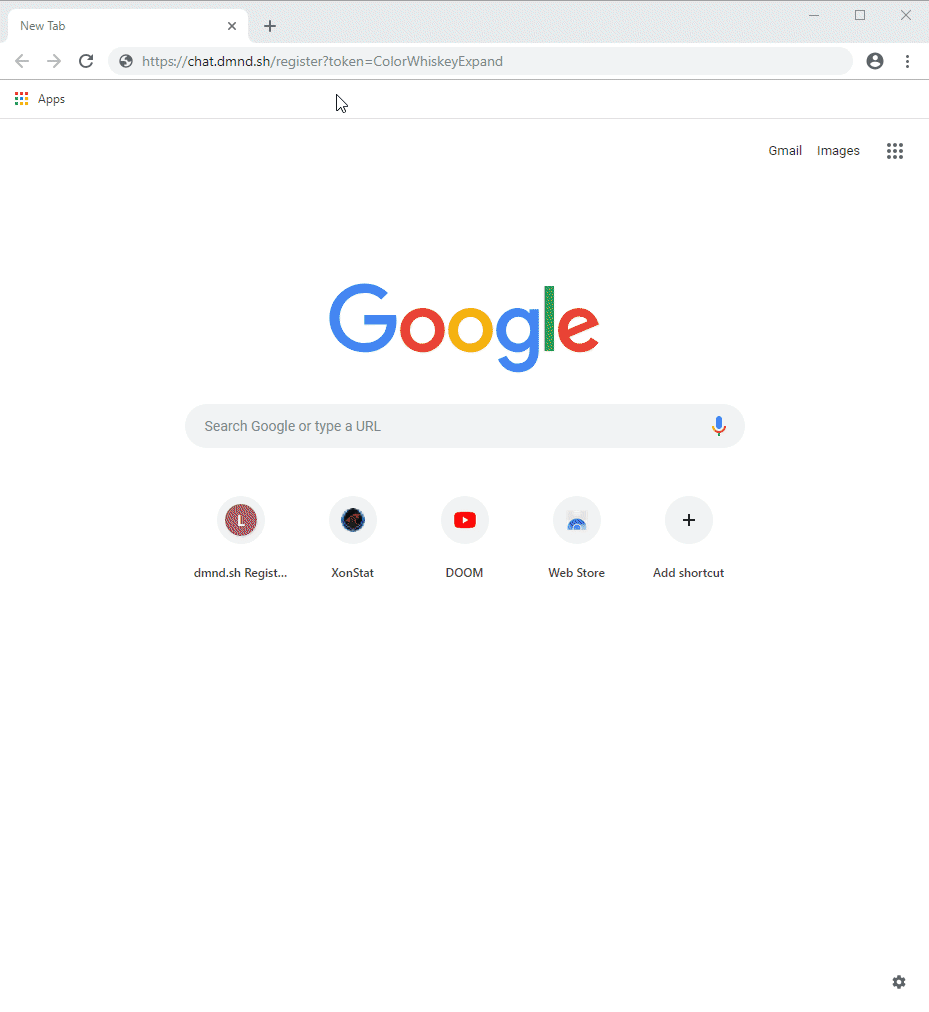|
|
||
|---|---|---|
| .github | ||
| alembic | ||
| matrix_registration | ||
| resources | ||
| tests | ||
| .coveragerc | ||
| .gitignore | ||
| .travis.yml | ||
| CODE_OF_CONDUCT.md | ||
| CONTRIBUTING.md | ||
| LICENSE | ||
| README.md | ||
| SECURITY.md | ||
| alembic.ini | ||
| config.sample.yaml | ||
| default.nix | ||
| docker.nix | ||
| setup.py | ||
| shell.nix | ||
| tox.ini | ||
README.md

matrix-registration
A simple Python application enabling token-based registration for matrix servers.
You may have, like me, encountered the situation where you want to invite your friends to create an account on your homeserver, but neither want to open up public registration nor create accounts for every individual user yourself. This project aims to solve this problem.
With matrix-registration, you can quickly generate tokens on the fly and share them with your friends to allow them to register on your homeserver.

Setup
Install using pip:
pip3 install matrix-registration
or check the docker guide
First start
To start, execute matrix-registration.
A configuration file should be generated for you on first start.
Note:
For server_location it is recommended to use a local connect, e.g. localhost:8008 (or whatever port synapse listens to).
It is possible however to connect over the internet, but you will need to make sure /_synapse/admin/v1/register is accessible.
If the configuration file is not automatically discovered...
you can create a configuration by copying config.sample.yaml to your server and editing it:
wget https://raw.githubusercontent.com/ZerataX/matrix-registration/master/config.sample.yaml
cp config.sample.yaml config.yaml
nano config.yaml
Then pass the path to this configuration to the application on startup using --config-path /path/to/config.yaml.
INFO:
- This only asks you for the most important options.
You should definitely take a look at the actual configuration file. The path to the file will be printed by
matrix-registrationthe first time it runs.
Usage
$ matrix-registration -h
Usage: matrix-registration [OPTIONS] COMMAND [ARGS]...
a token based matrix registration app
Options:
--config-path TEXT specifies the config file to be used
--version Show the flask version
-h, --help Show this message and exit.
Commands:
generate generate new token
serve start api server
status view status or disable
After you've started the API server and generated a token you can register an account either:
- with a simple post request, e.g.:
curl -X POST \
-F 'username=test' \
-F 'password=verysecure' \
-F 'confirm=verysecure' \
-F 'token=DoubleWizardSki' \
http://localhost:5000/register
- or by visiting http://localhost:5000/register?token=DoubleWizardSki
Further Resources
Nginx reverse-proxy
If you'd like to run matrix-registration behind a reverse-proxy, here is an example nginx setup:
location ~ ^/(static|register) {
proxy_set_header X-Forwarded-For $proxy_add_x_forwarded_for;
proxy_pass http://localhost:5000;
}
If you'll be using the web API, you'll also need to forward that endpoint. More information on reverse proxying here
Custom registration page
If you want to write your own registration page, you can take a look at the sample in resources/example.html
The html page looks for the query paramater token and sets the token input field to it's value. this would allow you to directly share links with the token included, e.g.:
https://homeserver.tld/register.html?token=DoubleWizardSki
If you already have a website and want to use your own register page, the wiki describes a more advanced nginx setup.
bot
if you're looking for a bot to interface with matrix-registration and manage your tokens, take a look at:
Similar projects
- matrix-invite live at https://librepush.net/matrix/registration/
- matrix-register-bot using a bot to review accounts before sending out invite links
- MatrixRegistration similar java project using my webui
- Mother Miounne "A bridge between matrix and external services", which also integrates matrix-registration
For more info check the wiki
Artwork attribution
- The valley cover photo on the registration page is photo by Jesús Roncero used under the terms of CC-BY-SA 4.0. No warranties are given.
- The font used on the registration page is Nunito which is licensed under SIL Open Font License, Version 1.1.



